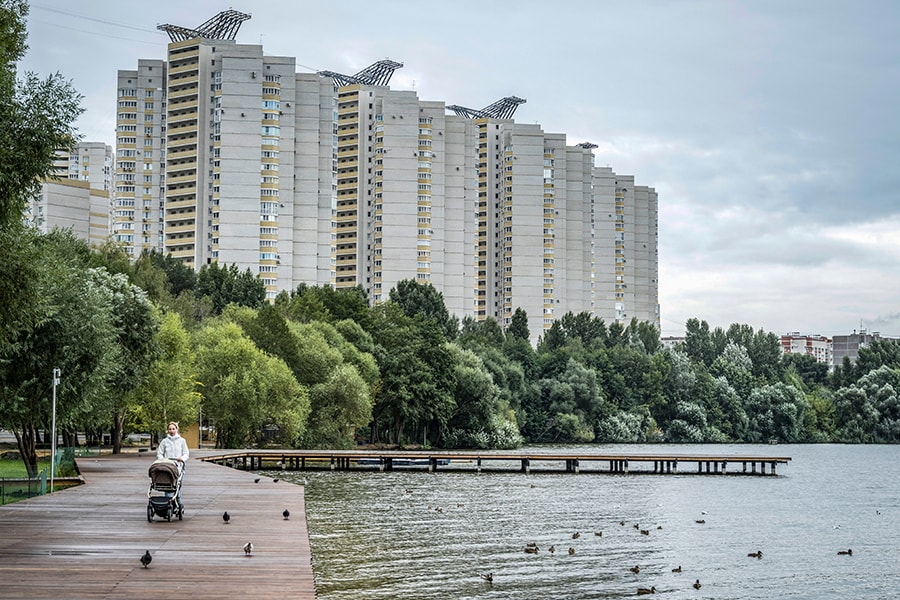
As Russians vote, resignation, anger and fear of a post-Putin unknown
To many, Putin remains a hero, especially for his assertive foreign policy, while those who oppose him are retreating, as they put it, into their own oases or parallel worlds
 A woman walks her child along the promenade of a reservoir in Voronezh, a city often regarded as the epitome of provincial boredom in Russian popular culture, Sept. 2, 2021. In reality, Voronezh is a testament to the Kremlin’s ambitious urban renewal program, which is refashioning drab cities with fresh parks, modern playgrounds, bike lanes and walkable streets.
A woman walks her child along the promenade of a reservoir in Voronezh, a city often regarded as the epitome of provincial boredom in Russian popular culture, Sept. 2, 2021. In reality, Voronezh is a testament to the Kremlin’s ambitious urban renewal program, which is refashioning drab cities with fresh parks, modern playgrounds, bike lanes and walkable streets.
Image: Sergey Ponomarev/The New York Times
MURMANSK, Russia — She walked into the cafe wearing a face mask that read, “I’m not afraid, and don’t you be afraid.” A man in a leather jacket followed her in, looked at her as she sat down next to me, then disappeared. Another man, in a vest and gray cap, waited outside.
He trailed us as we walked out.
I was interviewing Violetta Grudina, an activist in the Russian Arctic city of Murmansk who is allied with imprisoned opposition leader Alexei Navalny. She was still recovering from a hunger strike. Now under relentless surveillance, she confessed to a creeping, numbing desperation.
“We are all in a trap — trapped by one tyrant,” Grudina said. “This stupor that comes from giving everything you possibly can, but nothing changes — it is hard.”
Russia is a country in which nothing changes until everything changes. Ahead of the national parliamentary elections this weekend, President Vladimir Putin’s rule has reached a new apogee of authoritarianism, coated in a patina of comfortable stability. To many, Putin remains a hero, especially for his assertive foreign policy, while those who oppose him are retreating, as they put it, into their own oases or parallel worlds.
©2019 New York Times News Service




